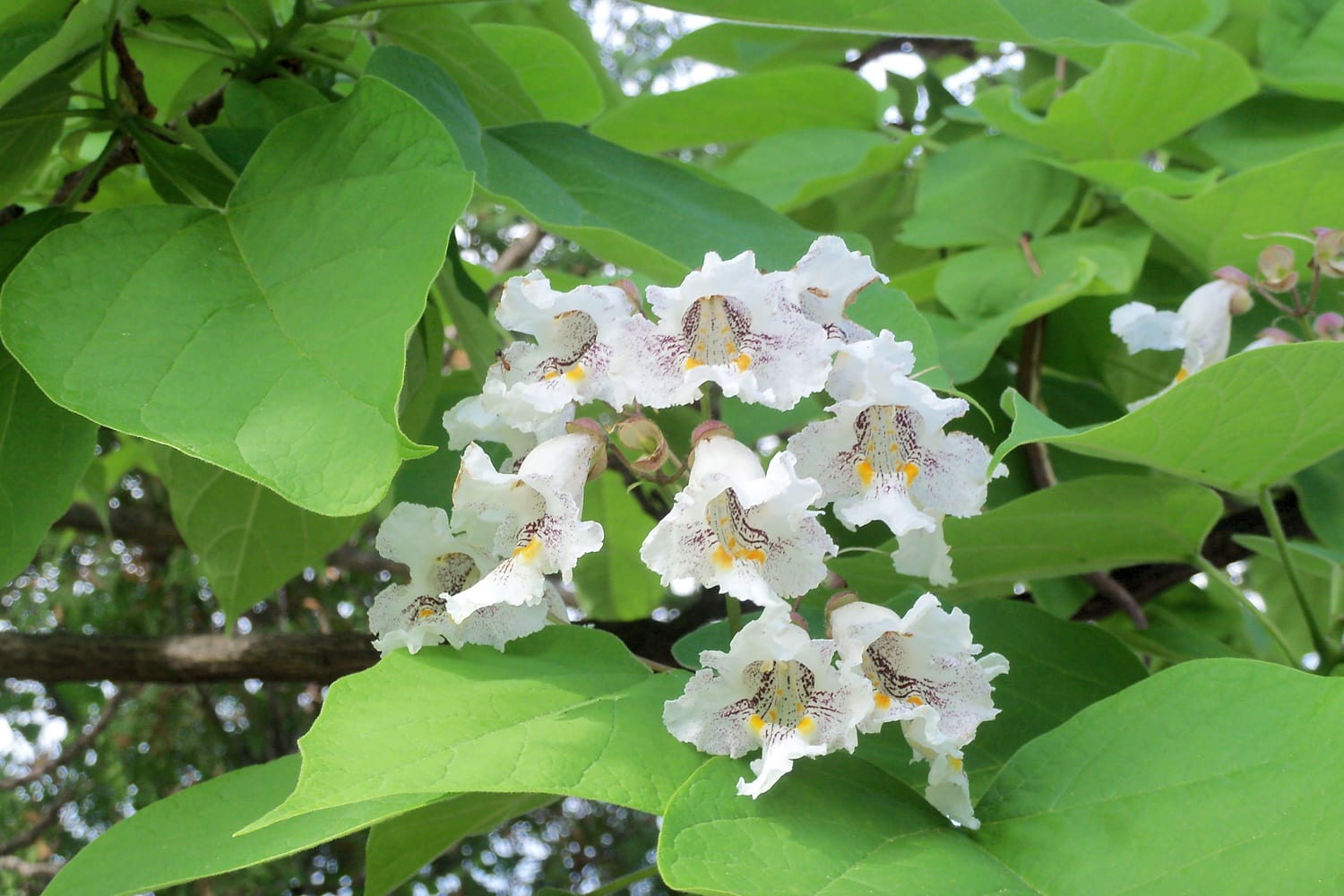Trees are a vital part of our environment. Some trees have unique leaves. One type is trees with large heart-shaped leaves. These trees are special and beautiful. Let’s learn more about them.
Types of Trees With Large Heart-Shaped Leaves
There are many types of trees with heart-shaped leaves. Here are some popular ones:
| Tree Name | Description |
|---|---|
| Redbud Tree | This tree has bright pink flowers in spring. |
| Katsura Tree | The leaves turn golden in the fall. |
| Linden Tree | It has fragrant flowers and large leaves. |
| Paulownia Tree | This tree grows very fast and has purple flowers. |
Redbud Tree
The Redbud Tree is very beautiful. It has pink flowers in spring. The leaves are heart-shaped and large. This tree is often used in gardens and parks. It can grow up to 30 feet tall. The Redbud Tree is also known as Cercis canadensis.
Katsura Tree
The Katsura Tree has lovely leaves. In autumn, the leaves turn golden. The tree has a sweet smell. It is a good choice for your garden. The Katsura Tree can grow up to 40 feet tall. Its scientific name is Cercidiphyllum japonicum.
Linden Tree
The Linden Tree is also known as the Basswood Tree. It has large, heart-shaped leaves. The flowers smell very nice. This tree is often used in urban areas. It can grow up to 70 feet tall. The Linden Tree’s scientific name is Tilia.
Paulownia Tree
The Paulownia Tree grows very fast. It has purple flowers and large leaves. This tree is often used for timber. It can grow up to 50 feet tall. The Paulownia Tree’s scientific name is Paulownia tomentosa.

Credit: tbrnewsmedia.com

Credit: www.indystar.com
Benefits of Trees With Large Heart-Shaped Leaves
Trees with heart-shaped leaves are not just pretty. They also have many benefits. Here are some of them:
- Provide Shade: These trees give lots of shade. This can keep your house cool in summer.
- Improve Air Quality: Trees help to clean the air. They take in carbon dioxide and give out oxygen.
- Habitat for Wildlife: Many animals live in these trees. Birds, squirrels, and insects find food and shelter here.
- Increase Property Value: A beautiful tree can make your home more valuable.
- Reduce Noise: Trees can block noise from roads and neighbors.
How to Care for Trees With Large Heart-Shaped Leaves
Caring for these trees is not hard. Here are some tips to help you:
Watering
Water the tree regularly. Young trees need more water. Water the soil around the tree. Do not water the leaves directly. This can cause disease.
Pruning
Prune the tree to remove dead branches. This helps the tree grow strong. Prune in late winter or early spring. Use clean tools to avoid spreading disease.
Fertilizing
Fertilize the tree to help it grow. Use a balanced fertilizer. Follow the instructions on the package. Too much fertilizer can harm the tree.
Mulching
Put mulch around the base of the tree. This helps keep the soil moist. It also keeps weeds away. Use wood chips or bark for mulch.
Protection From Pests
Check the tree for pests. Look for signs of damage. Use natural pest control methods. Avoid using harsh chemicals.
Frequently Asked Questions
What Tree Has Large Heart Shaped Leaves?
The Catalpa tree is known for its large, heart-shaped leaves.
Are Heart-shaped Leaves Common?
Yes, several trees and plants feature heart-shaped leaves, including the Redbud and Katsura trees.
What Is The Largest Heart-shaped Leaf?
The Catalpa tree has one of the largest heart-shaped leaves, up to 12 inches long.
Where Do Catalpa Trees Grow?
Catalpa trees thrive in North America, particularly in USDA zones 4 to 8.
Conclusion
Trees with large heart-shaped leaves are wonderful. They are beautiful and useful. There are many types to choose from. They provide shade, clean air, and homes for animals. Caring for these trees is easy. Follow the tips above to keep your tree healthy. Enjoy the beauty and benefits they bring to your garden.
